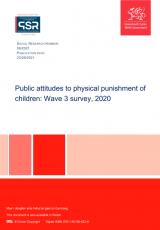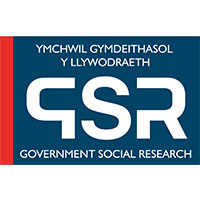The objective of this research was to build on previous surveys conducted in 2018 and 2019 on public attitudes towards physical punishment of children, including the legislation.
This is not the latest release in the series: Public attitudes to physical punishment of children
Findings from this survey wave are compared to responses from previous waves of the 2018 and 2019 Beaufort Omnibus survey. Respondents were asked a series of questions about attitudes towards smacking, awareness of legislation around physical punishment of children and awareness and opinion of changes to legislation. As fieldwork was conducted during the COVID-19 pandemic respondents completed the 2020 survey via an online self-completion method. The previous waves used an in-home face-to-face interviewer approach. Therefore any changes in results from waves before the mode change and the current wave should be interpreted with caution; a change could be wholly, partly or not at all due to the change in mode.
Main findings
- Views remain mixed on whether ‘it is sometimes necessary to smack a child’ but the public were more likely to disagree (47%) with the statement than agree with it (34%).
- Balance of opinion remains related to age of respondent with those aged over 55 being much more likely to agree that ‘it is sometimes necessary to smack a child’ than those aged 16 to 34.
- Across all three surveys (2018, 2019, 2020) there appears to be a degree of misunderstanding around the current status of legislation around smacking, with only a minority thinking that this is allowed.
- Levels of ‘unprompted’ awareness of the change in legislation in 2020 (27%) have decreased since 2019 (42%) and are very similar to those reported in the baseline survey in 2018 (28%).
- Levels of ‘prompted’ awareness of the change in legislation have decreased in 2020 but the level remains higher (44%) than the baseline survey in 2018 (34%).
- The proportion of those in favour of the removal of the defence of reasonable punishment has decreased since 2019 (46%) and is at the same level as 2018 (38%). Similarly, the proportions against the change has also decreased since 2019 (30%) and is 25% for 2020. This reflects an increase in those who feel they need more information or are undecided (37% versus 24% in 2019).
- The increased proportion of the public who were undecided on the matter wanted more information on how it would work and greater clarity around definitions that were part of the legislation.
Reports

Public attitudes to physical punishment of children: wave 3 survey, 2020 , file type: PDF, file size: 1 MB
Data
Datasets and interactive tools
Public attitudes to physical punishment of children: wave 3 survey, 2020 , file type: XLSX, file size: 66 KB
Contact
Alyson Lewis
Telephone: 0300 025 8582
Rydym yn croesawu galwadau a gohebiaeth yn Gymraeg / We welcome calls and correspondence in Welsh.

